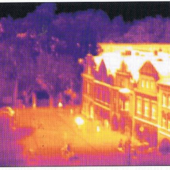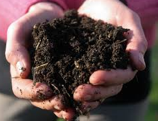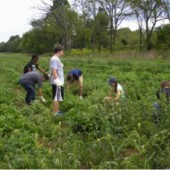
Abstract: A brief history of climatological science sets the stage for understanding the rise of the greenhouse gas thesis. That science is true as far as it goes, justifying our confidence, but it is an incomplete assessment of climatic systems. We have spent 40 years accepting the “pot lid” as the cause of the pot boiling over. That the “sun-warmed surface” impacts climate has been known for nearly 200 years. But greenhouse science failed to incorporate that and other scientific findings on urbanism, water cycles, and land management practices. To remedy this, I propose a broad climatic paradigm to address the actual cause of warming and provide a far more hopeful future with ample opportunities to resolve over-heating more completely, locally, and in a matter of months, years, or maybe decades, instead of centuries. Lastly, I discuss the significance of paradigm change, a new approach, and an expanded curriculum as challenges to sustainability education.
Continue ReadingAbstract: This thought piece proposes the adoption of a new “3 Rs” to inform a climate-responsive environmental and sustainability education (CRESE): reclamation, resilience, and regeneration. As a changing climate becomes the larger campus of our learning, denial and top-down emergency preparedness both prove to be insufficient. We are invited into a deeper approach. Reclamation and resilience fold in (1) the saving of enduring biocultural lifeways and patterns and (2) the dynamic flux-states of panarchic socioecological resilience models. These two partner with (3) regeneration: context-responsive social collaborations; eco-socially-embedded capacity building systems; and the promise of regenerative design. These three approaches allow us to re-envision educational systems and encounters that are proactive rather than only reactive or responsive in metabolizing persistent climatic volatility. These three approaches – reclamation, resilience, and regeneration – echo the three approaches to climate change that Pelling has suggested (2009) – mitigation, adaptation, and transformation. Note, however, unlike Pelling’s model, these approaches are conceived as simultaneously requisite literacies and movements rather than as competing. Reclamation, resilience, and regeneration represent ever-more-complex types of capacities and support capacity building aimed together toward life-supportive, dynamic, complex systems transformations. Environmental and sustainability education that fosters skills of reclamation includes preservation, conservation, recording, and the establishment of libraries and sanctuaries of exemplar systems. Environmental and sustainability education (ESE) for resilience includes network extension and adaptive capacity building. ESE for regeneration nurtures emergent complex systems metacognitions, creativities, and transformative, transgressive social approaches that are connective, disruptive, and innovative and model and embody complex emergence. Regenerative ESE fosters skills to facilitate catalysis of emergent regeneration, self-organization, and transformation into more complex living systems. All of these position embedded learners in pro-active, systems-intensive embodiments of the types of living networks that foster survival, flexibility, thriving, and phase-change during our entry into a time of consistent climate turbulence.
Continue Reading
This personal narrative illustrates the role composting has played in the author’s connection to place throughout her adult life, and informs her scholarship today. Over the past twenty-something years she lived in close to twenty different homes, and yet always found space and time to create a compost/planting pile. The outcome is that between her efforts, kitchen scraps, and dishwater the soil gained fertility, and she too connected more deeply with each element. The essay proposes that home and community composting practices can inform our view of learning, shift educational paradigms, and help address the complex environmental and social concerns we face today.
Continue Reading
To address solutions to environmental degradation in an authentic context, this qualitative research study examines college students’ responses to outdoor fieldwork in an agriculture-focused humanities course. Students’ responses to fieldwork on organic farms generated three integrated themes. Active care encompasses students’ actions of care for plants, people, and animals; intimate connection includes feelings of kinship with people, plants, land, farmer networks, and love of farming. Of particular interest is the third theme of regeneration, related to actions ensuring flourishing of future generations of humans and the natural world. The study raises questions about the need for significant curricular change in higher education to prepare students to respond effectively to climate unpredictabilities and environmental degradation.
Continue ReadingThis work proposes a novel theoretical framework for sustainability education and explores four possible applications of the framework. Insights from complexity and complexity education elide with patterns from nature to birth four patterns of regenerative, emergent education. In this work I explore these four natural systems models of emergence and apply them to education. For […]
Continue ReadingAbstract Today we find ourselves standing in the crossroads of our future. Will we learn from our past mistakes and successes or become yet another story of societal and ecological collapse? As sustainability educators we are called to consider our contribution to education innovation by asking, as does Stephen Sterling (2001), what is education innovation, […]
Continue Reading